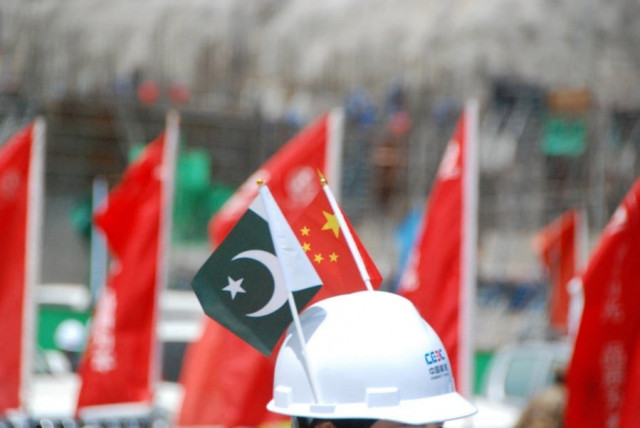Beijing:
Pakistan and China have had talks about the alignment of their cooperation in nuclear energy research and space with wider development objectives.
Development came as Minister of Planning, Development and Special Initiatives that Hsan Iqbal met China Atomic Energy Authority and the president of the Chinese space agency Shan Zhongde.
“Reunion has focused on alignment of nuclear energy cooperation and spatial research with wider national development objectives,” a statement said.
IQBAL recognized that the Economic corridor of Chinese Pakistan (CPEC) played an essential role in eliminating the bottlenecks in the infrastructure and energy sectors of Pakistan.
He noted that collaboration between Pakistan and China in the nuclear energy sector continues to grow. Nuclear power plants K-2, K-3 and C-5 are brilliant examples of this strategic cooperation.
Speaking on the impacts of climate change, the minister stressed the urgent need to adopt other energy sources.
He noted that climate change has forced the world to explore alternative energy avenues to combat vulnerabilities of food security, water, health care, agriculture, mineral resources and other key sectors of the economy.
He said that under the leadership and vision of Prime Minister Shehbaz Sharif, the Pakistan space program has taken new momentum.
Stressing the “Uraan Pakistan” initiative, he argued that a particular concentration was given to the progress of the space sciences.
Recently, he said, Pakistan has successfully launched three satellites with China’s cooperation, adding that “Pakistan should send its first astronaut to the Chinese space station in 2026.” Iqbal also shared that the Pakistan space agency, Suparco, was responsible for launching a lunar mission by 2035.
He stressed that Pakistan had a highly qualified human resources pool at a relatively low cost, of which China could benefit from the improvement of their capacities through collaboration.
The Minister stressed that Pakistan has created a quantum computer center in response to emerging technological challenges.
He stressed the importance of strengthening the research partnership and the exchange of knowledge between CAEC, Suparco and Pakistan Atomic Energy Commission, for the peaceful use of technology.
The Minister noted that the government had launched a national program to align the sectors of science, technology and engineering with the development objectives of Pakistan.
He underlined the need to expand opportunities for young Pakistani scientists to receive higher education in space technology through Chinese exchange programs.
President Zhongde appreciated the precious contributions from Iqbal to the progression of the CPEC.
He said Pakistan and China have solid PK Press Club-strategic relations that have now changed in deeply rooted economic cooperation.
He said China was ready to extend full cooperation in Pakistan in the field of space research, adding that the two countries were committed to peaceful use of nuclear energy.




